For some it means chocolates or flowers and for others it means black noodles or book signings. Either way, most countries have given at least one day a year to the best feeling there is, Love! Here is Dreame’s round-up of the most fascinating and adorable celebrations of love around the world.
Japan: Date: March 14th, 2015, ‘White Day’
The Japanese celebrate Valentines Day the same way Americans do. However, on this day women give chocolate to men rather than the common-place tradition of men gifting women with tokens of love. This is rumored to be a tradition which originated from a translation error of a chocolate company during the initial campaigns marketing Valentines Day. It is customary for working women to give chocolate to their co-workers. In Japan, gifts such as greeting cards, candies, flowers, or dinner dates are uncommon, and most of the activity is about giving the right amount of chocolate to each personal co-worker.
Unpopular co-workers receive only ‘obligatory’ sweets or cheap chocolate. This contrasts with honmei-choko ‘favorite chocolate.’ This chocolate is given to a loved one. It is also customary for younger girls to give chocolate to friends.
To combat the lack of gifts for women the Japanese National Confectionery Industry Association launched a campaign to make March 14th a ‘reply day’ also known as ‘White Day’ to resemble the white chocolate that is given to women. On this day men return the favor by giving chocolates to all of the women who gave them sweets on Valentine’s Day. This day is termed ‘White Day’ for the color of the chocolates being offered.
On White Day men must return gifts that are at least two or three times more valuable than the gifts they received on Valentine’s Day so not to be perceived as placing themselves in a position of superiority. Returning a present of equal value is considered to indicate an undercut to the relationship.
South Korea: Date: April 14th, 2015, ‘Black Day’
South Koreans use Valentines Day as a day to mourn the single life. If they are in a relation, they celebrate similarly to the Japanese: women give chocolate to men on February 14th, and then the men reply by gifting candy to women a month later (White Day). The outstanding difference between South Korean tradition and Japanese tradition comes on April 14th. This day is considered Black Day for those who did not receive anything on Valentines Day or White Day. These bachelors and bachelorettes convene at Chinese restaurants to eat black noodles and ‘mourn’ their singleness.
For Koreans the 14th of every month symbolizes a reason to celebrate love. From January to December they have: Candle Day, Valentine’s Day, White Day, Black Day, Rose Day, Kiss Day, Silver Day, Green Day, Music Day, Wine Day, Movie Day, and Hug Day. Each day is used to commemorate love, so there are many opportunities for Koreans to make up for ‘Black Day.’
Catalonia: Date: April 23rd, 2015
Sant Jordi Festival is the most romantic holiday of all of Barcelona’s celebrations. Saint Jordi Festival is a celebration of the Saint George, the chivalrous patron saint of Catalonia. The tale goes that Saint George rescued a Princess from the dragon, bringing her a delicate rose to commemorate his undying devotion to her. The tradition of woman giving her beloved a book is said to be rooted in commemorating the death of Cervantes, the great Spanish author of Don Quixote, which falls on April 23rd.
This holiday is much more symbolic than cards and candy, it is a celebration of both culture and love. Barcelona’s tradition is for the lady to offer her counterpart a book in return for a rose. The two lovers stroll the Boulevards, perusing the book carts which mark every corner, looking for the most exquisite read to compliment this special day. During Saint Jordi Festival authors line the boulevards, signing their books for blushing women and doting men, with the smell of roses lingering in the air.
Finland: Date: February 14th, 2015
Ystävänpäivä “friends day” celebrating your friends. It is not romantic in nature. Its core value lies in the celebration of friends. Rather than gifting chocolates and cards to a significant other, you spend the day showering your friends with gifts to show your love and admiration. Still, it is a common day for the Finnish to get married or engaged.
China: Date: 7th day of 7th month on the Chinese Calendar, August 20th, 2015
The Qixi Festival, “Chinese Valentine’s Day, “ celebrates a day remembering a famous cowherder, Niu Lang, and a weaving maid, Zhi Nu, were finally allowed to be together after a tumultuous courtship. It is a romantic tale of kindred hearts, a symbolic story for the celebration of love.
In Chinese culture, there is an observance for lovers, called ‘The Night of Sevens.’ According to the legend, the Cowherd star and the Weaver Maid star are separated by the Milky Way but are allowed to meet by crossing the stars only on the 7th day of the 7th month of the Chinese calendar.
Customs include women preparing delicious fruits to offer Zhi Nu, widely regarded as a beautiful women who is apt at sewing, in order to be endowed with the masterly sewing skill. Women are also hoping to be granted with a sweet love like Zhi Nu. The Elderly often orally transpose this tale of love to the young. While this legend is still known in rural towns, it is considered archaic in China’s cities.
Iran: Date: 5th day of Esfand in the Solar Hejri, February 24th, 2015
In Iran, the Sepandarmazgan, or ‘Earth’s Guardian Angel,’ originated from the deity Spandarmad in the 20th century B.C. Spandarmad is said to have been the protector of the Earth and the ‘good, chaste and beneficent wife who loves her husband.’
According to the deity, the festival used to be dedicated specifically to women, and men would hand-craft them presents symbolizing their love. Today, it is a celebration of women, adoration, and earth. It is a festival where people express love towards their mothers and wives. Mothers, who symbolize the nurturing of earth and all of it’s land, animal, and creatures, are given willows and other gifts by their children and husbands.
Singapore: Date: February 14th, 2015
Singaporeans celebrate Valentines day in essentially the same way as all other Western countries: flowers, chocolates, nice dinner, and jewelry. However, Singaporeans are remarkable in that they are amongst the biggest spenders on Valentine’s Day. Though this small country has only been celebrating since their Independence in 1956, it is reported that 60% of Singaporeans claim that they spend between $100 and $500 on gifts…during the season leading up to Valentines Day!
Israel: Date: 15th of the month Av, July 30th, 2015
In Israel, the Jewish ancient tradition of Tu B’Av has remained partially intact and has also been transformed to encompass customs of the Western world’s Valentines Day. In ancient times girls would wear white dresses and dance in the vineyards as a ceremony of love. Today, Tu B’Av is celebrated as a second holiday of love (after Valentines Day) by secular people. While Israelis celebrate Valentine’s Day the same way any Western country would, with flowers and gifts, Tu’ B’Av is treated as less of a commercial holiday and more of a day for grandiose actions of commitment and love. In modern Israeli culture Tu B’Av is a popular day to pronounce love, propose marriage and give gifts like cards or flowers.
Wales : Date: January 25th, 2015
Dydd Santes Dwynwen, the Welsh day of love, is based on an oral tale dating back to the 5th Century. As the tale goes, beautiful Dwynwen fell in love with Maelon Dafodrill, but for an undisclosed reason they remained estranged lovers. A few rumored reasons include the rape of Dwynwen by Maelon, her father’s forbiddance of the pair to marry, her father’s promise of her hand to another suitor. Dwywen desperately wishes to fall out of love with Maelon as she cannot manage the sorrow of life without him.
Dwywen falls asleep in the woods and is visited by an angel who appears carrying a sweet potion concocted to erase her memory of Maelon and to turn him into a block of ice. God then grants Dwywen three wishes. First she wishes that Maelon be thawed, second that God fulfill the wishes and dreams of all true lovers, and third that she should never be married. All three wishes are granted, and as repayment to God Dwynwen devotes herself to His service by becoming a nun.
Although still not as popular as Valentine’s Day, Dwynwen’s Day is becoming more common among Welsh Citizens. Dwynwen’s Day gained momentum in 2003 when the Welsh Language Board teamed up with Tesco (a UK grocery chain) to distribute 50,000 free Dwynwen’s day cards in all 43 of its Welsh stores.
Turn Your Dreams Into Art
A Dreame ritual: Re-dream magical moments with your other half this Valentine’s day. Choose an artist, enter the Dream Maker and submit your story to receive as your own work of art.
690views
Share on Facebook
 Dark Mode
Dark Mode 

 No fees, cancel anytime
No fees, cancel anytime 


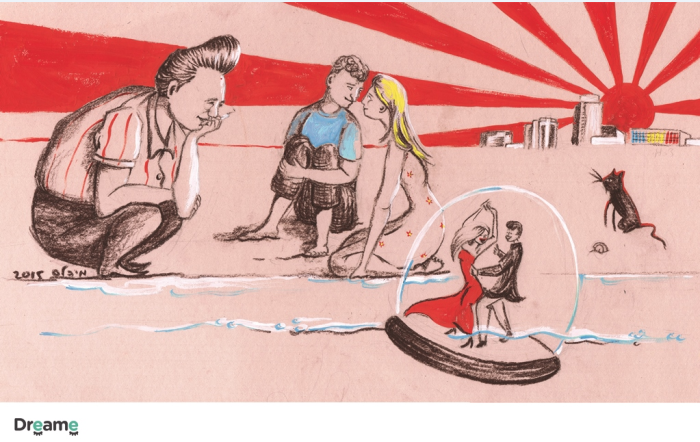

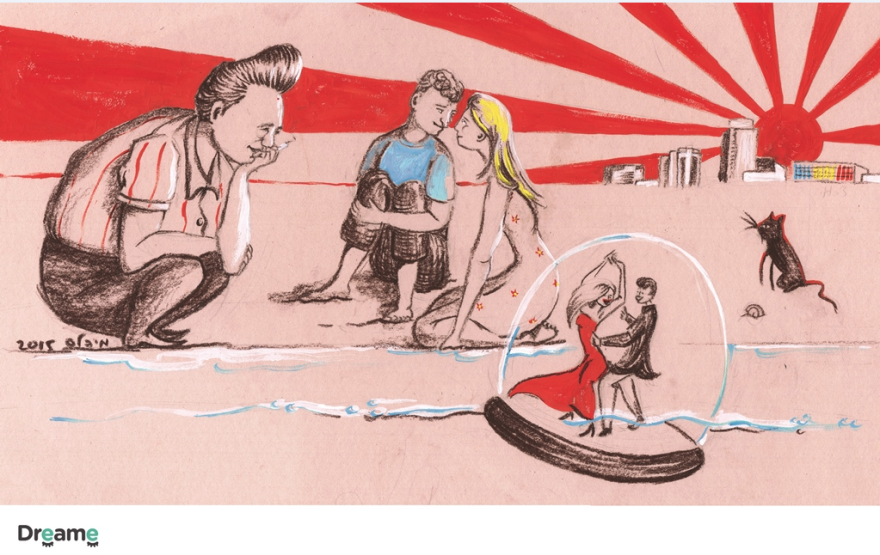
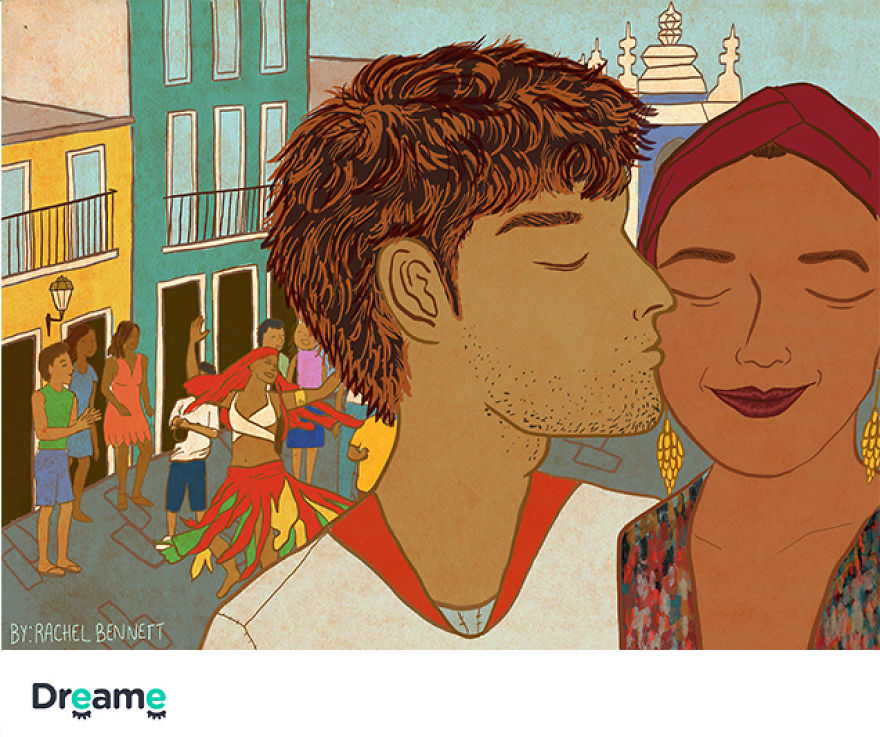
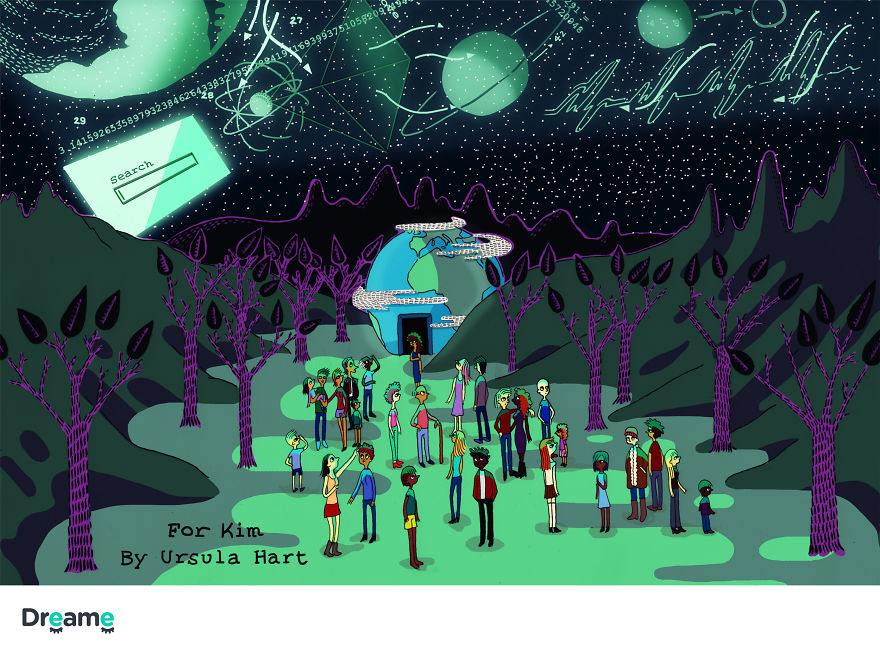
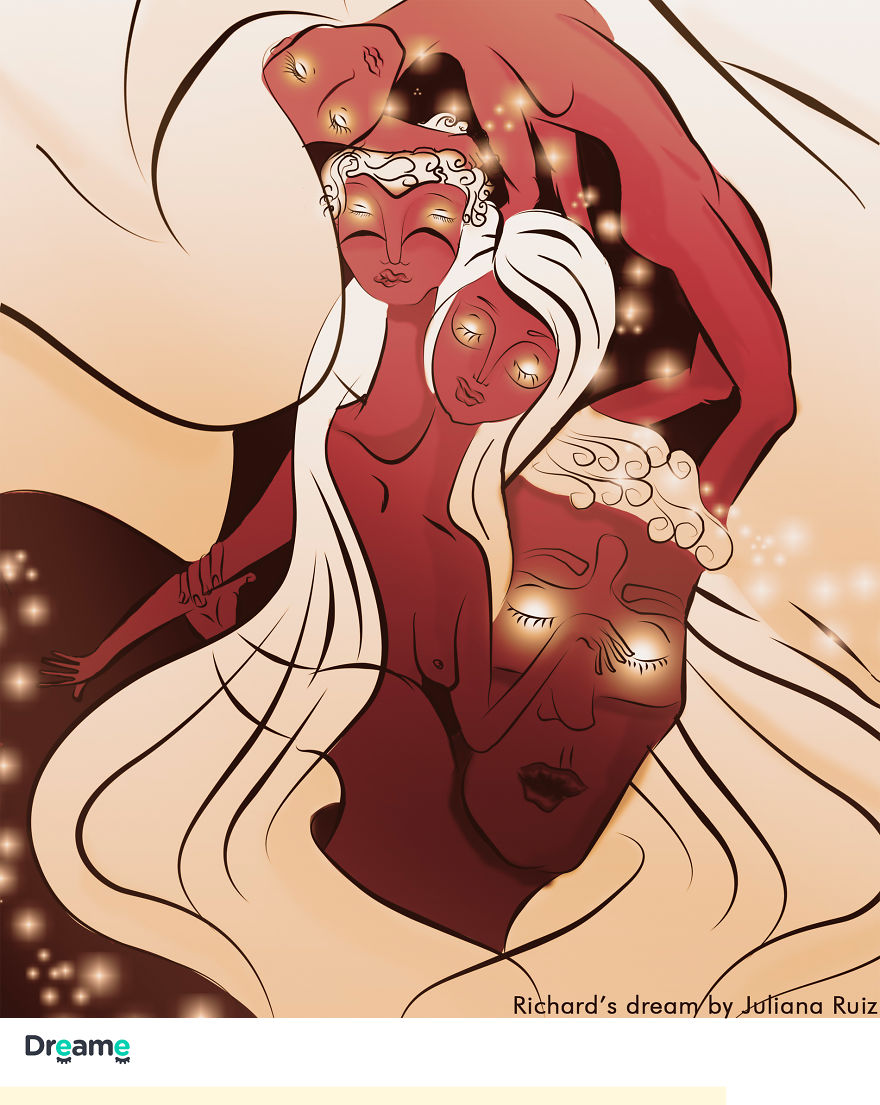
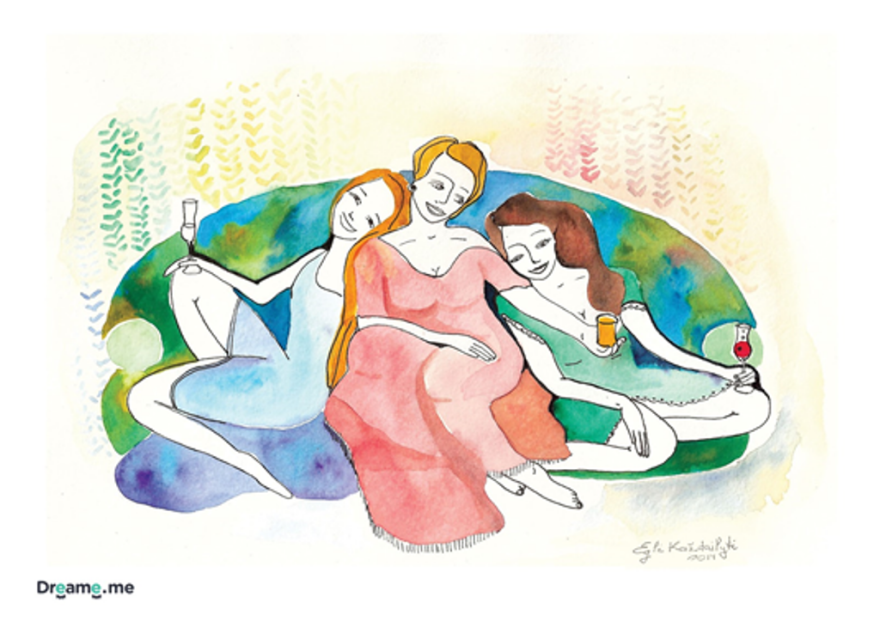
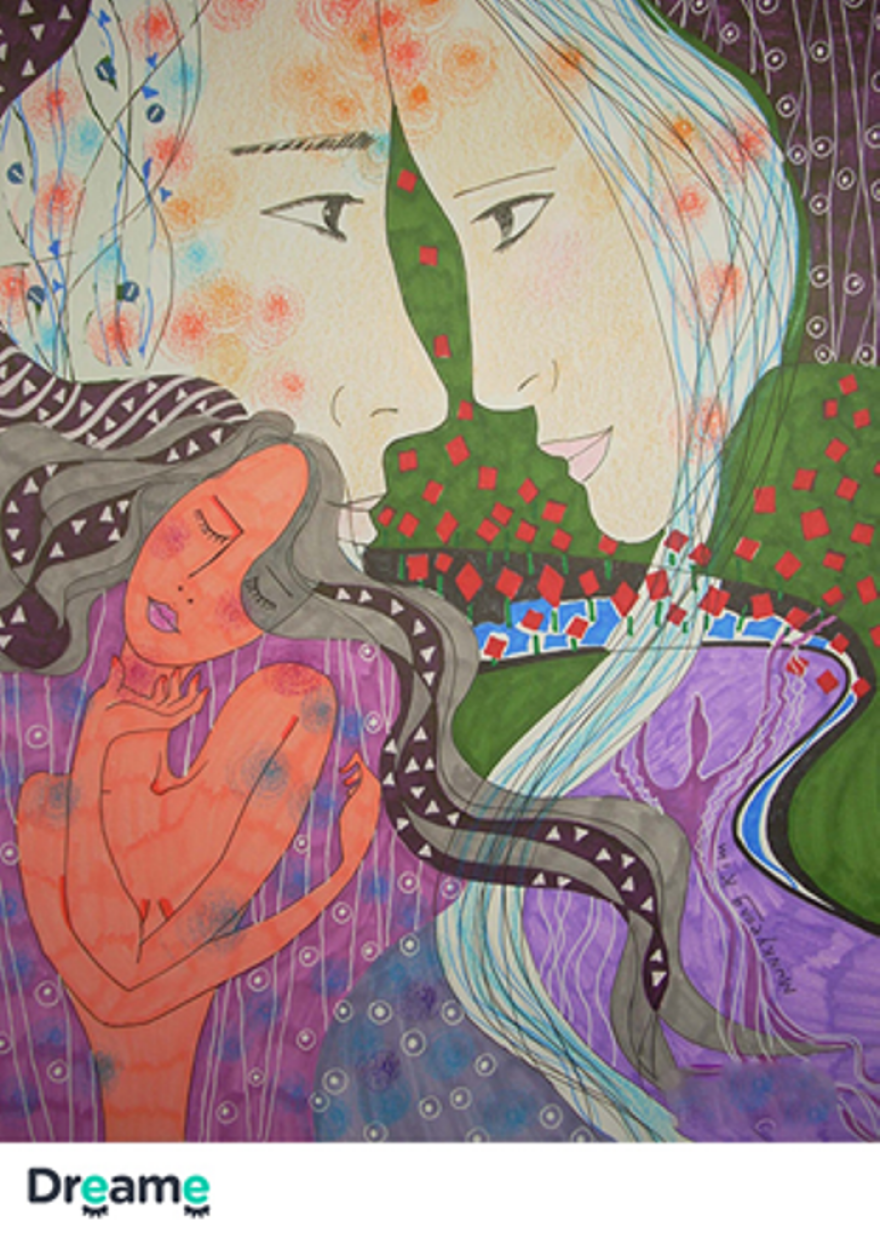
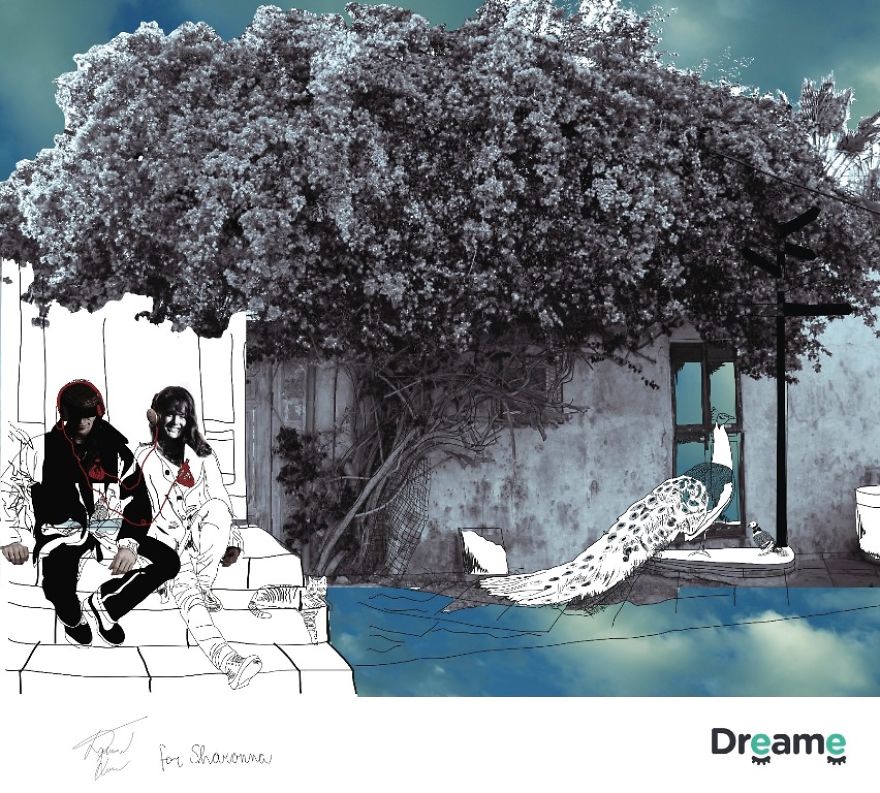
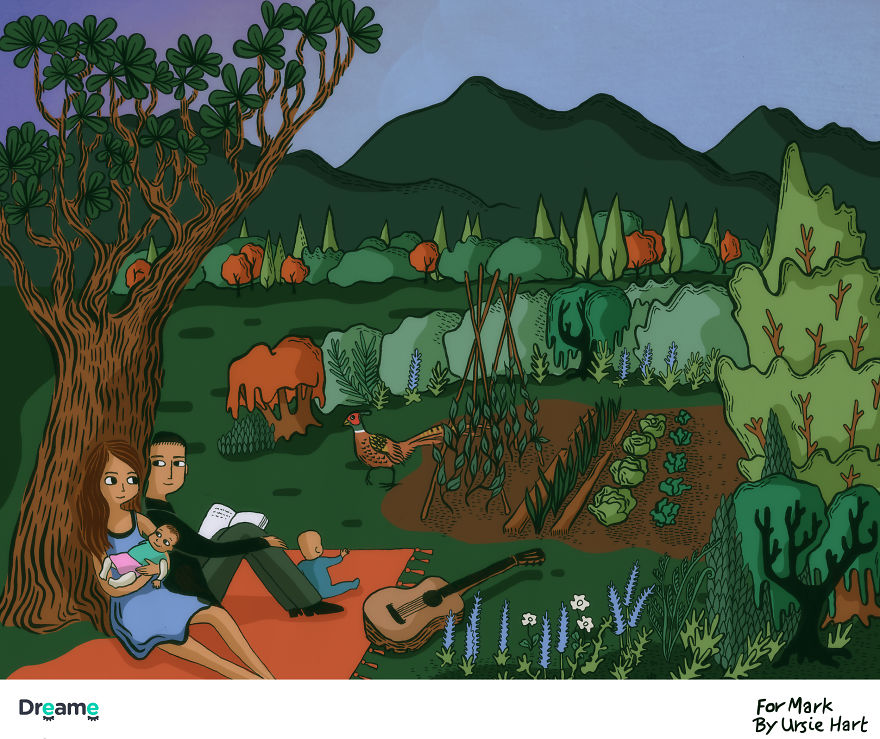
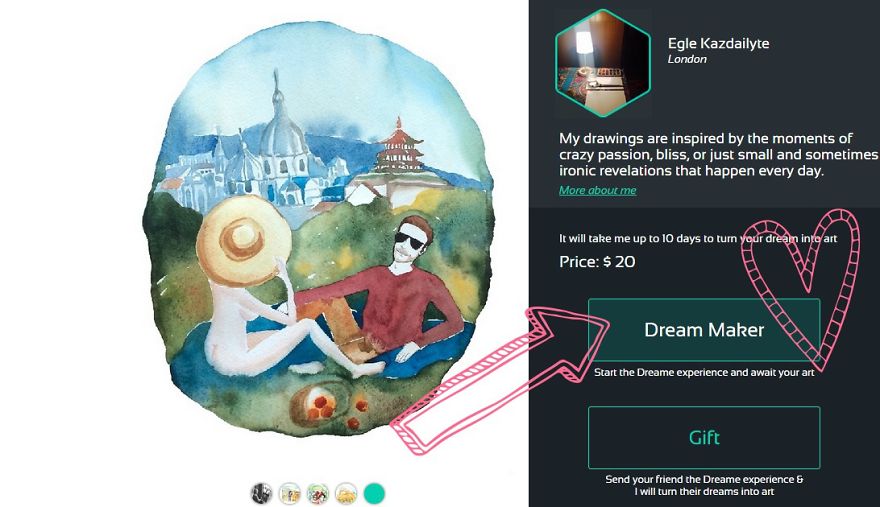

























3
0